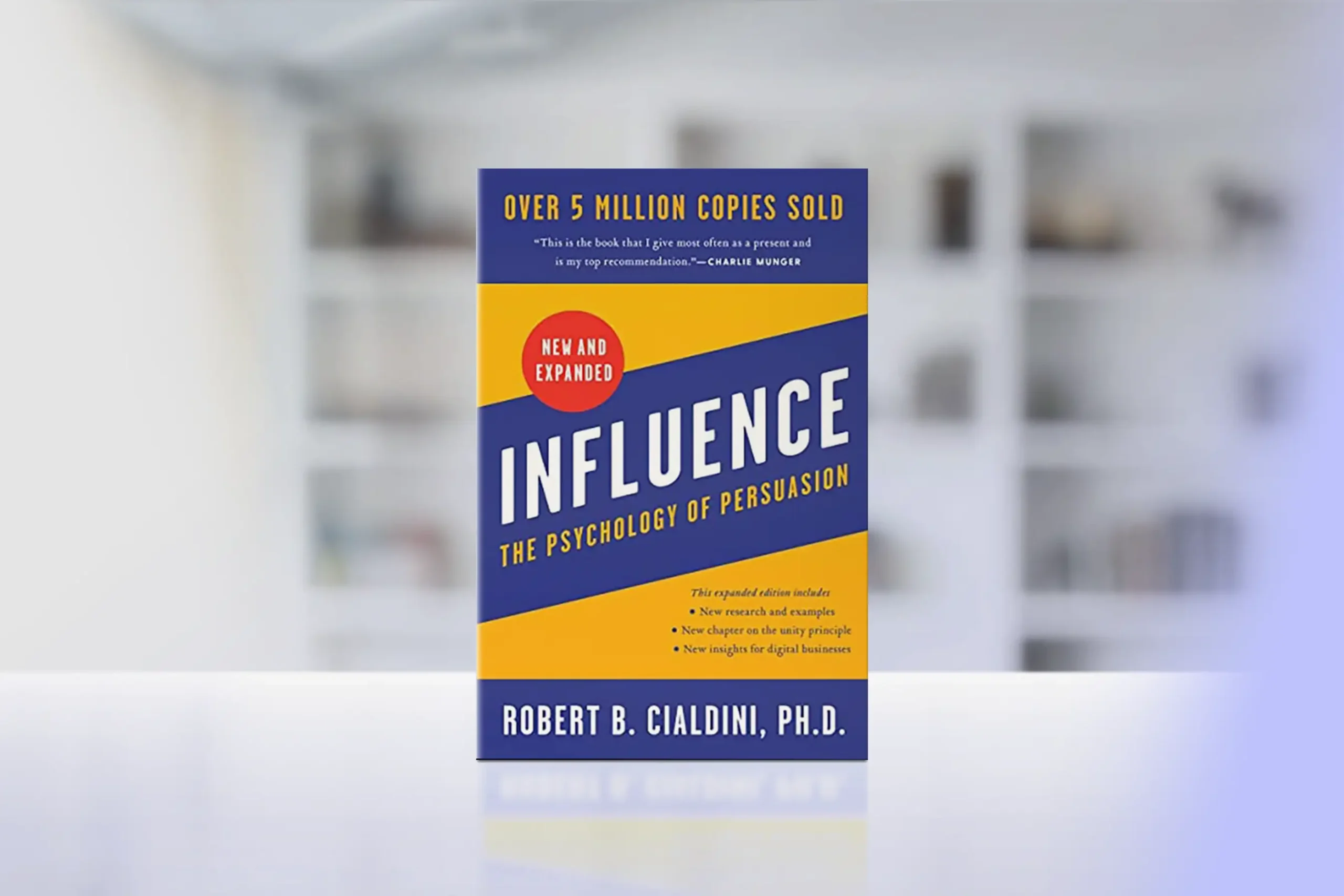We’ve all experienced it—scrolling through social media or LinkedIn, only to suddenly question our own worth and progress. This is the comparison trap: measuring yourself against someone else’s timeline. What feels harmless quietly drains confidence and motivation. In this article, we’ll explore why comparison is killing your dreams and how refocusing on your own journey can bring back both joy and clarity of authentic living.
Inside this article:

1. The Comparison Trap
Comparison is Stealing Your Joy and Dreams. It’s Sunday evening. You’re winding down, feeling good about the progress you’ve made this week. Then—scroll, scroll, scroll—you spot a friend announcing a promotion, another launching a business, and someone else celebrating a huge milestone. Suddenly, your own wins shrink in comparison. That knot in your stomach tightens, and a nagging thought whispers: “Why am I not there yet?”
If that sounds familiar, you’re not alone. Comparison has quietly become one of the biggest mental health drains of our time, and research shows just how damaging it really is:
- Digital Wellness: Limiting social media to 30 minutes per day led to significantly lower depression and loneliness after three weeks — not one (source, source).
- 2025 Healthy Minds Poll: 32% of adults say social media has done more harm than good for their mental health, compared to 24% who say it helped (source).
- Generational Impact: Nearly 89% of Gen Z report feeling unsatisfied when comparing their lives to others on social media (source). Broader surveys show 41% of Millennials and 46% of Gen Z feel stressed or anxious most or all of the time (source).
- Social Comparison Theory: While comparing ourselves to others is natural, decades of research show it can undermine self-worth when it dominates our self-assessment.
The truth? Constant comparison is the silent dream-killer of our generation. It doesn’t inspire growth—it quietly drains motivation and distorts what success looks like. What feels like “healthy competition” is often just a trap, pulling us away from our unique journey and convincing us our path only matters if it matches someone else’s highlight reel.
Related Articles: Learn how to create personal success metrics that align with your values rather than external expectations – Discovering Your Life’s Purpose: A Comprehensive Approach – Discover the psychological impact of constant digital comparison and strategies for healthier online habits – Digital Detox: Finding Balance in a Connected World.
Key Takeaways: Comparison is a universal experience that can trigger feelings of inadequacy, while social media amplifies these feelings by showcasing curated success stories. When we shift focus from our journey to others’ achievements, we inevitably undermine our own progress.

2. Why We Compare Ourselves to Others
From the moment we enter school, we’re taught to measure our worth against others. Who finished the test first? Who got the highest grade? Who made the team? This social conditioning follows us into adulthood, where promotions, salaries, and life milestones become the new ways we measure ourselves.
How Social Conditioning Shapes Comparison Habits:
- Educational Systems: Grades, rankings, and standardized testing create early comparison patterns
- Workplace Culture: Performance reviews pit colleagues against each other for limited promotions
- Family Dynamics: Sibling comparisons and parental expectations establish measuring behaviors
- Cultural Messages: Society celebrates “winners” and overlooks diverse paths to success
We tell ourselves this comparison helps us improve—that seeing others succeed motivates us to reach higher. The illusion of progress feels real when we’re constantly benchmarking against external achievements. But more often than not, this measuring creates paralysis rather than momentum.
The Highlight Reel Problem in Digital Age:
- Curated Content: Social media shows only polished final results, never the struggle
- Missing Context: Success announcements lack background of failures and setbacks
- Timing Illusions: Years of work appear as overnight success
- Selective Sharing: People share wins but rarely discuss challenges or doubts
- Comparison Amplification: 24/7 access to others’ achievements intensifies measuring habits
What would it feel like to scroll through your feed with curiosity instead of comparison? To see others’ achievements as proof of what’s possible rather than evidence of what you lack?
Related Article: Explore how early educational systems shape our comparison habits and how to rewire these patterns – The Mind-Body Connection: Holistic Approaches to Personal Development.
Key Takeaways: Social conditioning trains us to measure worth through comparison from early childhood, yet the “improvement through comparison” belief often leads to paralysis rather than progress. Social media amplifies unrealistic comparisons by showing highlight reels instead of full stories.

3. How Comparison Destroys Dreams
Comparison attacks your dreams through four devastating pathways, each one capable of derailing even the most ambitious aspirations.
Erodes Self-Worth
That internal dialogue starts innocently enough—”They’re doing well”—but quickly morphs into “I’m not good enough.” This confidence collapse prevents the very risk-taking that dreams require. Why start a business when you see others already succeeding? Why write a book when bestsellers already exist? The voice of comparison whispers that the world doesn’t need what you have to offer.
Creates Unrealistic Timelines
You see someone at 25 achieving what you’re working toward at 35, and suddenly you feel “behind”—as if life were a race with standardized checkpoints. This manufactured urgency can make you quit prematurely, abandoning dreams just months or years before they might have flourished. Success has its own timeline, not the one you see on LinkedIn.
Shifts Focus from Creation to Competition
Instead of spending energy building your vision, you waste it watching others build theirs. You become a spectator in your own life, analyzing others’ moves rather than making your own. This surveillance mindset transforms potential collaborators into threats and turns inspiration into intimidation.
Breeds Resentment Instead of Inspiration
Other people’s success begins to feel threatening rather than motivating. Their wins become evidence of your limitations rather than proof of possibility. This toxic mindset doesn’t just kill dreams—it kills the joy that makes pursuing them worthwhile.
Here’s how these destructive patterns show up in real life:
| Comparison Mindset | Growth Mindset |
|---|---|
| “They got promoted faster than me—I must be failing” | “Their promotion shows what’s possible—what can I learn from their approach?” |
| “Everyone else seems to have it figured out” | “Everyone is figuring it out as they go, just like me” |
| “I’m too old/young to start now” | “My timing is unique to my journey and circumstances” |
| “They’re naturally talented—I could never do that” | “They’ve developed skills I could build too with practice” |
| “Their success makes me feel small” | “Their success expands my sense of what’s achievable” |
| “I need to catch up to where they are” | “I need to focus on my next authentic step forward” |
| “Why bother when others are already succeeding?” | “The world has room for my unique contribution too” |
You can almost feel the weight lifting when you realize that someone else’s success doesn’t diminish your potential—it simply illuminates different paths to the same mountaintop.
Related Article: Practical strategies for dealing with feelings of inadequacy and self-doubt in professional settings – Building Confidence and Self-Esteem: Simple Steps for Lifelong Empowerment.
Key Takeaways: Comparison systematically undermines the confidence needed for pursuing dreams by creating artificial timelines that lead to premature abandonment of goals. This shifts focus from productive creation to destructive competition, where resentment replaces inspiration and poisons the journey toward dreams.

4. The Psychology of Comparison
Why does comparison feel so compelling yet prove so destructive? The answer lies in three powerful psychological forces working against your dream-building efforts.
Scarcity Mindset Drivers:
- Zero-Sum Thinking: Believing success is limited, so others’ wins feel like your losses
- Resource Competition: Assuming there’s only so much opportunity or recognition available
- Primitive Brain Response: Ancient survival mechanisms treat others’ success as threats
- False Competition: Creating rivalry where collaboration could flourish instead
Cognitive Distortions That Fuel Comparison:
- Overgeneralization: “I’ll never be that good” based on one person’s achievement
- All-or-Nothing Thinking: “If I’m not as successful as them, I’m a failure”
- Mental Filter: Focusing only on others’ successes while ignoring your own progress
- Fortune Telling: Predicting failure based on others’ current positions
- Emotional Reasoning: “I feel inadequate, therefore I must be inadequate”
Fear of Failure Amplification:
- Perfectionism Paralysis: If you can’t guarantee matching others’ results, why try?
- Judgment Anxiety: Fear of criticism keeps dreams safely locked away
- Imposter Syndrome: Others’ success reinforces feelings of fraudulence
- Risk Aversion: High stakes created by constant comparison prevent necessary risks
What surprised me most when I started studying the psychology of comparison was how it actually works against the very growth we think it promotes. The stress hormones released during comparative thinking inhibit creativity and risk-taking—the exact qualities dreams require to manifest.
Related Article: Transform limiting beliefs about limited opportunities into empowering abundance thinking – Growth Mindset: How to Develop a Mindset for Success and Resilience.
Key Takeaways: Scarcity mindset creates false competition by assuming limited success, while cognitive distortions like overgeneralization fuel comparison-based thinking. Fear of failure intensifies when constantly exposed to others’ achievements, and comparison triggers stress responses that inhibit the creativity and risk-taking that dreams require.

5. Breaking Free from the Comparison Trap
The path out of comparison’s grip requires intentional strategies that redirect your energy toward your own growth and vision.
Shift Focus Inward
Define success on your terms, not others’. What does fulfillment look like for your unique circumstances, values, and aspirations? Your definition of success might include work-life balance while someone else prioritizes rapid career advancement. Neither is wrong—they’re simply different paths requiring different metrics.
Celebrate Progress
Track your small wins and milestones instead of fixating on others’ major announcements. That rough draft you finished this week matters more than someone else’s published bestseller if you’re early in your writing journey. Progress compounds quietly until it suddenly becomes visible to the outside world.
Practice Gratitude
When comparison thoughts arise, immediately shift attention to what you already have and are building. Gratitude isn’t just positive thinking—it’s a neurological reset that rewires your brain away from scarcity and toward appreciation for your unique circumstances and opportunities.
Limit Exposure
Curate your social media feeds or take breaks entirely to protect your mental space. Unfollow accounts that consistently trigger comparison. Follow accounts that inspire without intimidating, teach without bragging, and celebrate others without making you feel smaller.
Transform Comparison into Inspiration
When you notice someone achieving what you want, study them as a role model, not a competitor. What strategies do they use? What can you learn from their journey? Curiosity about their methods serves your growth; envy about their results only drains your energy.
Feel the freedom that comes when you realize others’ success can light the way forward rather than highlight your perceived shortcomings. Their achievements become proof of what’s possible, not evidence of what you lack.
Related Articles: Design meaningful measurements for your progress that reflect your individual goals and values – How to Set Career Goals and Stick to Them. Learn how to recognize and celebrate incremental progress to maintain motivation and momentum – The Power of Habit: How Cultivating Good Habits Transforms Your Life.
Key Takeaways: Define success using your own values and circumstances rather than others’ achievements, recognizing that small wins and progress matter more than comparing major milestones. Strategic limitation of comparison triggers protects mental energy, while others’ success can inspire learning rather than trigger competition.

6. The Power of Authentic Living
Your dreams flourish when they’re rooted in your unique path, not someone else’s blueprint. Think about the dreams that excite you most—chances are, they emerged from your specific experiences, challenges, and insights that no one else possesses. When you try to follow someone else’s exact formula for success, you lose access to these unique advantages.
True fulfillment comes from alignment, not competition. The most satisfied people aren’t those who’ve outperformed others, but those who’ve aligned their actions with their authentic values and aspirations. This alignment creates sustainable motivation because it’s powered by internal compass rather than external validation.
Authentic Living Checklist – Are You On Track?
- Values Alignment: Your daily actions reflect your core beliefs and priorities
- Unique Strengths: You’re leveraging talents and perspectives only you possess
- Internal Motivation: Your drive comes from personal fulfillment, not external approval
- Progress Tracking: You measure growth against your past self, not others
- Failure Reframing: Setbacks become learning opportunities rather than evidence of inadequacy
- Curiosity Over Competition: Others’ success inspires learning rather than triggers comparison
- Timeline Acceptance: You trust your pace without feeling rushed by others’ achievements
- Contribution Focus: You concentrate on what you can give rather than what you can get
- Authentic Expression: Your work and relationships reflect your true self
- Growth Mindset: You believe abilities can be developed rather than viewing them as fixed
Comparison shrinks dreams by making them relative to others’ achievements. Authenticity expands them by connecting them to your infinite potential for growth and contribution. When you stop measuring your dreams against others’ realities, you give yourself permission to pursue visions that might seem impossible to outside observers but feel inevitable to you.
Isn’t it remarkable how the dreams that seem most uniquely yours often turn out to be exactly what the world needs? Your specific combination of talents, experiences, and perspectives creates possibilities that no amount of comparison could reveal.
Related Article: Identify the distinctive strengths and perspectives that only you can bring to your work and relationships – Self-Discovery: Personality Tests and Tools to Learn More About Yourself.
Key Takeaways: Authentic dreams emerge from your unique experiences and insights, while sustainable fulfillment comes from internal alignment rather than external competition. Authentic pursuit expands possibilities while comparison limits them, and your unique path often provides exactly what the world needs.
Don’t Lose Your Future Happiness
When you break free from the comparison trap, your dreams transform: from proving yourself to expressing yourself, from racing timelines to embracing journeys, from seeking relative success to creating authentic impact.
Here’s your action plan to reclaim your dreams from comparison:
- Today: Unfollow three social media accounts that consistently trigger comparison
- This Week: Write down three personal wins from the past month, no matter how small
- This Month: Define what success means to you, independent of anyone else’s achievements
- This Quarter: Create a support system of people who celebrate your authentic journey
- This Year: Take one meaningful action toward your dream that only you could take
Focus on your path and trust your timing. The only person you should compare yourself to is who you were yesterday.
Your dreams are uniquely, perfectly, undeniably yours. Stop comparing them to anyone else’s and start living them into reality.
Related articles
Growth Mindset: How to Develop a Mindset for Success and Resilience
Transform your relationship with challenges and setbacks by cultivating a mindset that sees obstacles as opportunities for growth.
The Power of Self-Compassion: A Guide to Building Inner Strength
Learn to treat yourself with the same kindness you’d offer a friend, especially during difficult times and setbacks.
Mindfulness for Beginners: Simple Techniques for Everyday Life
Discover how present-moment awareness can break the cycle of comparison and bring peace to your daily routine.
Further reading
“Mindset: The New Psychology of Success “by Carol S. Dweck
Explore the groundbreaking research on fixed vs. growth mindset and how changing your beliefs can transform your life.
“Self-Compassion” by Kristin Neff
Master the art of being kind to yourself and learn why self-compassion is more effective than self-criticism for motivation and growth.
“The Gifts of Imperfection” by Brené Brown
Embrace vulnerability and imperfection as the pathway to courage, compassion, and authentic connection with yourself and others.





